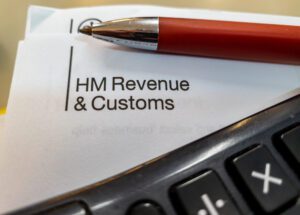The UK’s tax system is becoming increasingly costly and difficult to manage, with administrative expenses soaring for both the government and businesses, according to a damning report from the National Audit Office (NAO).
The spending watchdog warned that growing complexity in tax rules has pushed HMRC’s running costs up by £563 million in real terms since 2019-20, reaching £4.3 billion in 2023-24. Businesses, meanwhile, are estimated to be spending £15.4 billion annually on tax compliance, a figure the NAO believes may be an understatement.
Despite HMRC’s ongoing digital transformation, the report highlights a decline in service quality, with taxpayers and their representatives struggling to navigate the system. Recent concerns include longer call waiting times, with critics accusing HMRC of deliberately shifting users online by making its phone services harder to access.
One of the key drivers of rising costs is the 4.5 million increase in income tax payers between 2020-21 and 2023-24, bringing the total to 36.2 million. This has largely been fuelled by fiscal drag, with frozen income tax thresholds pulling more low earners into the basic rate band (£12,570) and pushing those nearing £50,270 into the higher 40% rate.
Alongside rising employment and population growth, these changes have significantly increased the number of taxpayers, adding pressure to HMRC’s administrative workload. Further costs—estimated at £875 million—are expected in the coming years due to new tax rule changes and increased anti-fraud measures.
Small businesses facing increasing burden
The report notes that small businesses, including landlords, are likely to be among the hardest hit as they are required to move to digital self-assessment records. The government has acknowledged the problem and announced tax simplification plans in its autumn budget, with further measures set to be revealed in April.
Despite the findings, an HMRC spokesperson defended its efficiency, stating: “It costs us just half a penny to collect every pound of tax revenue, with the NAO recognising our compliance work provides good value for money.” The tax authority insisted that modernisation and digital investment remain key priorities to streamline the system and reduce bureaucracy for businesses.
The NAO has urged HMRC to improve efficiency and cut the administrative burden for individuals and businesses, ensuring the tax system is more resilient and easier to navigate.
Gareth Davies, head of the NAO, stressed the need for a more modern and cost-effective approach: “Businesses and individuals deserve a modern, resilient and effective tax system to help them get their tax right first time. To get the most out of the money it spends on collecting taxes, HMRC must better understand how changes to the system affect the costs it incurs in administering taxes, as well as the financial burden on individuals and businesses.”
With further tax changes on the horizon, businesses and taxpayers alike will be watching closely to see if the government delivers on its promise to simplify the system and reduce compliance costs.
Read more:
Spiralling UK tax administration costs blamed on complex system, warns watchdog








